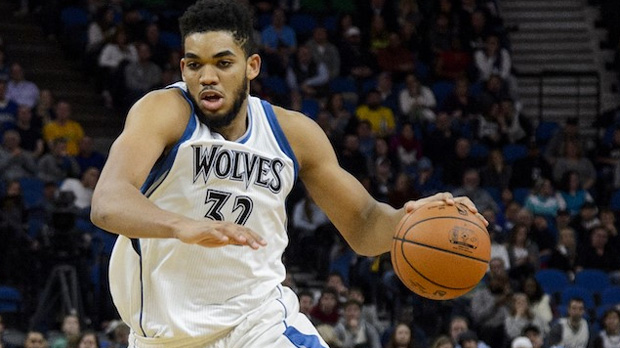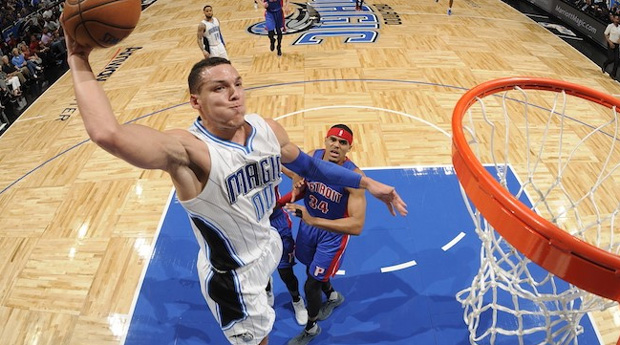| 3 Invaluable Tips From the NBA's Leading Mental Skills Coach |
| By: Brandon Hal
Provided by: STACK Betchart emphasizes simplicity in his training, often boiling down important concepts into easily-rememberable phrases. "When you're done reading a good self help book, you always feel good right after. Then about two weeks later, it all kinda fades away. That's a problem. I don't want to just get people fired up for a week and then they forget it. We need to make something they can get repetitive with," Betchart told STACK. "If we can just simplify things, I think it gives people a chance to practice them and not get overwhelmed." With that in mind, here are three key concepts Betchart works on with his clients. 1. Think 'What's Important Now?'
"What's important now?" or simply "WIN," is the foundation of Betchart's teachings. The concept is about staying in the present and being able to decipher what really matters amidst the incredible amount of noise that can surround an athlete. "(WIN) gets you into what's in your control. You can't control results and outcomes. So the first thing we try to do is let go of this obsession of focusing on results and outcomes. Take that incredible drive you have and focus on the things you can control. Focus on attitude, focus on effort, focus on your focus. Train yourself to be in the moment and focus on the task at hand," Betchart tells STACK. "That eliminates about 95 percent of what people are thinking about. So much of what gets people out of focus or derails their confidence is they're thinking about things they can't control - like other people's opinions, like winning and losing. That stuff is paralyzing to your confidence." Betchart firmly believes many athletes get too obsessed with winning. It may sound counterintuitive, but the difference between victory and defeat often amounts to a handful of decisions made throughout the game. If you're thinking about winning before the clock hits zero, that's adding unneeded pressure to a situation and taking your focus away from the next play. It's also a team game, which further takes "winning" beyond your control. "If you're always thinking about winning, that's somewhere in the future. So you're not really present," Betchart says. "It makes people feel nervous when they're thinking about winning, it makes them feel anxious. Have a great attitude with whatever's going on and have your effort be through the roof and if you can do that all the time, that gives you the best chance to win." 2. Play Present
Once a player is able to focus on what's important now, his next goal is to play present. It sounds simple, but being present is one of the most difficult challenges an athlete can face. "Instead of your goal being to win, your goal is to simply play present. That's the essence of everything. Being present is hard," Betchart says. "I work on being present all the time. It's not easy. "To play present is to focus on nothing but the most immediate task at hand. Even as chaos might unfold around you, you stay present and take things one play at a time. For example, take Jaylen Brown's season-opening performance against the Cleveland Cavaliers. There were about a million distractions that could've thrown Brown off. Isaiah Thomas, who was once his mentor, was now sitting on the opponent's bench. Gordon Hayward, his new teammate, had suffered a gruesome injury minutes into the game. Kyrie Irving, Thomas's replacement, was showered with boos every time he touched the ball. Yet Brown was able to remain remarkably focused, scoring a career-high 25 points. That's playing present. But even Betchart knows that a player can't be present all the time, which is why he also preaches "next play speed." 3. Strive for an Elite 'Next Play Speed'
Next play speed is about how quickly you can flip your focus to the next play. Miss a shot? You can either mope or dart into the paint and grab your own rebound. Bad turnover? You can either hang your head or bust your butt back on defense. How quickly you're able to switch your focus to the next play is what determines your next play speed. "How fast can I come back to the present?," Betchart says. "I just keep moving forward. I just keep coming. If I don't stop myself, I can't be stopped." Betchart has been working with Gordon since he was 11 years old, and the current Orlando Magic star was quickly drawn to the idea of "next play speed". "This stuff made sense to him; he bought in. By the time he got to college, instead of saying this guy has great next play speed, people said he had a great motor. They said he was just born with some special ability to constantly move forward. That wasn't the case. He had been training his mind to make his body move forward, and that's what happens," Betchart says. Gordon has been vocal about the effect mental skills training has had on his game. "It's not like you wake up and say, 'OK, I'm going to be mentally tough today.' It's taken me a long time of training to have a foundation of mental strength and toughness," Gordon told NBA.com. "It's taught me to have a consistent mindset regardless of what's going on around me. Instead of caving in to the circumstances, you buy into the opportunities…the better you get at failing, the more you are going to succeed, ultimately." If you want to gain access to the same mental skills training used by NBA athletes, take a look at the Lucid app. Betchart serves as the director of mental training at Lucid, and the app includes the same techniques (meditation, visualization and positive affirmations) he uses with the pros. The content is largely audio-based, so you can perform your five-minute daily session anywhere that you're comfortable popping in a set of earbuds. Photo Credit: Fernando Medina/Getty, Nathaniel S. Butler/Getty, Hannah Foslien/Getty |









